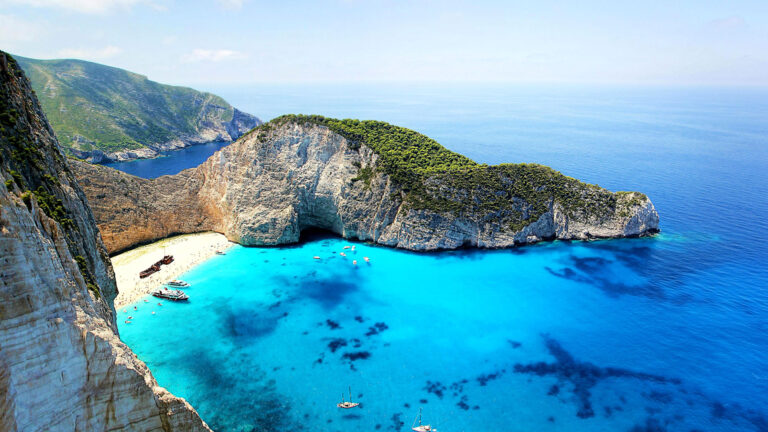
If you need a freelance travel writer or you would like to see your country, city, flight, etc., presented on the blog, drop me an email.
Find our more on Freelance Travel Writer page.
After so many things I already read and heard about the knights of Rhodes, I was impatient to take a tour around the Old Town of the capital city, the fortified town they built centuries ago.
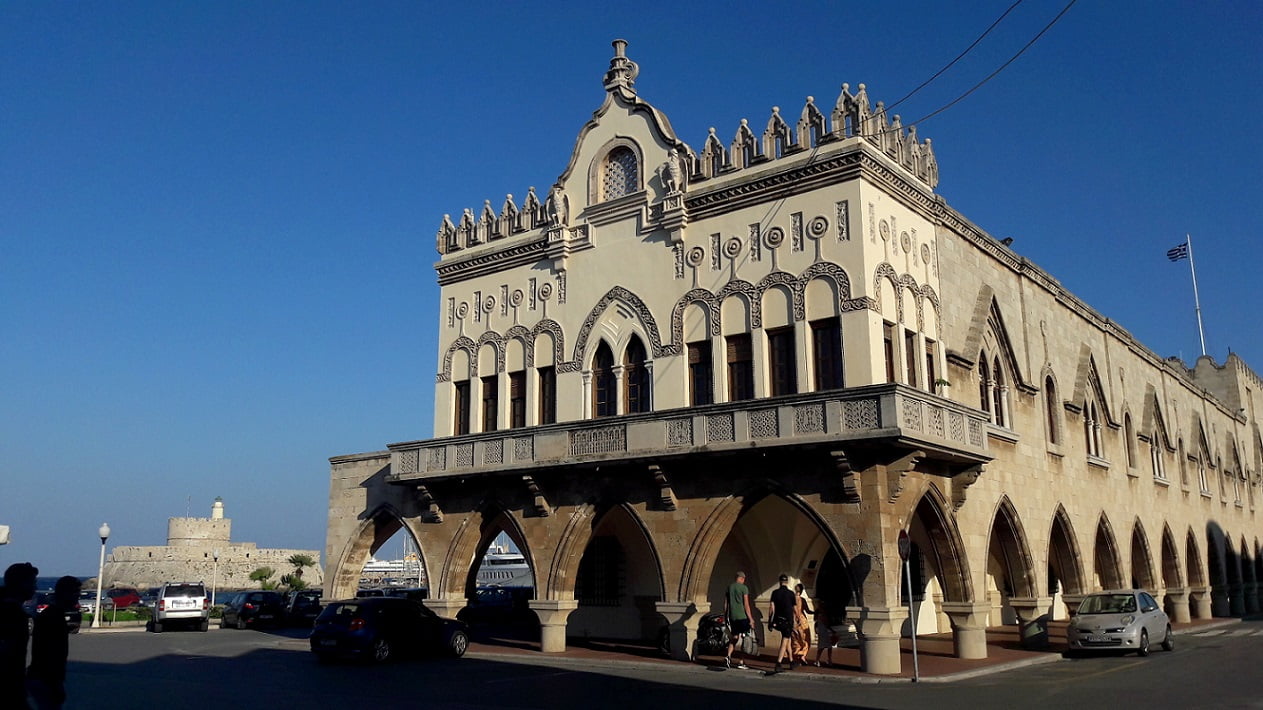
Our walk began at the small Mandraki Harbor, a nice pedestrian path next to the sea and a bustling street on the other side. There was a beautiful building, the Governer’s Palace, with a line of charming arches that resembled – Venice? And the Orthodox Church of Evangelismos, which didn’t really seem Orthodox in architecture, but rather – Catholic?
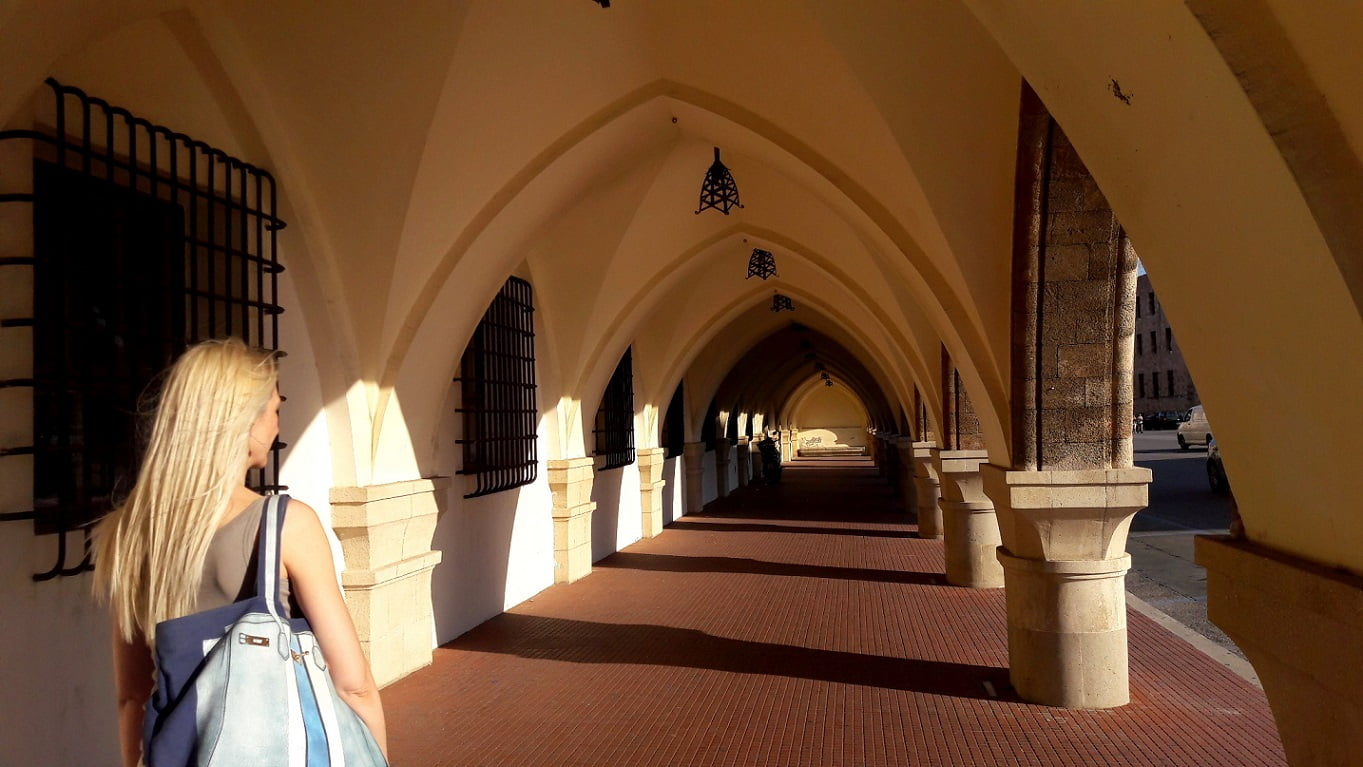
And yes, being so important and developed, the island was targeted by many invaders, from ancient Romans and Julius Caesar to fascists of World War II. Finally, the Greek flag was raised in 1948 over the same Governor’s Palace.
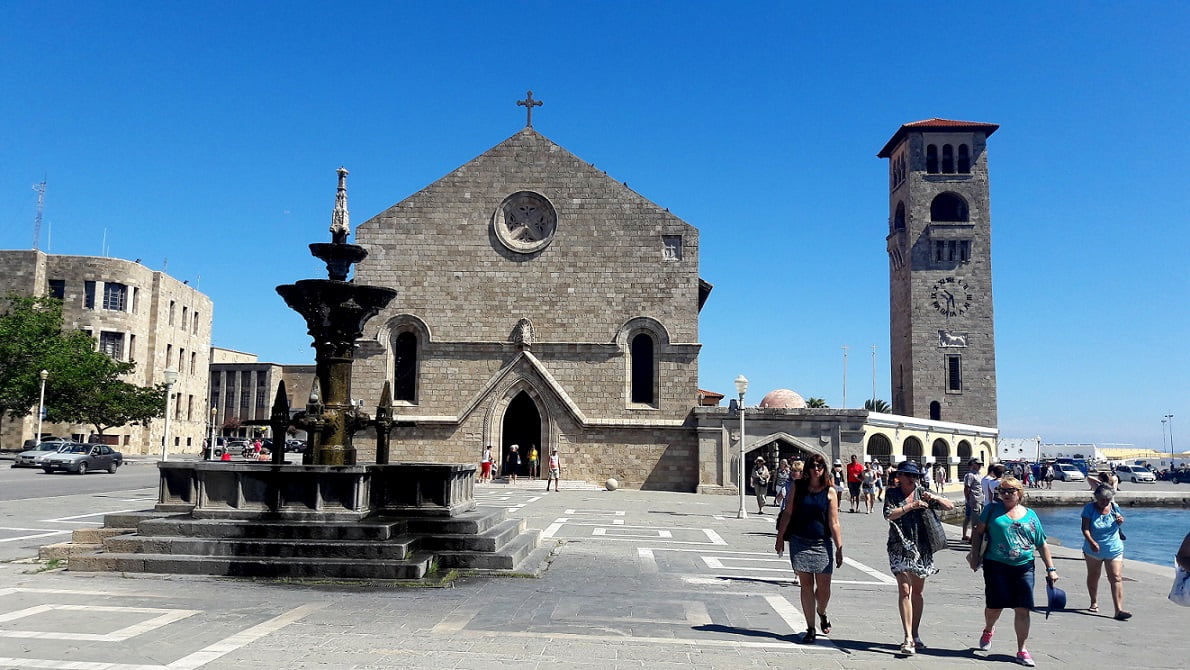
Since it’s a major commercial link between east and west, Rhodes also quickly responded to the new idea of Christianity. This is the island where St. Paul has embarked once (more about it when we get to Lindos Rhodes, the exact spot). After the division of the Roman Empire, Rhodes became the capital of the Byzantine Province of the Islands and was subject to frequent conquest and destruction. In 1082, the Venetians received permission to set up a commercial station in the harbor. (Hence, the similar architecture.)
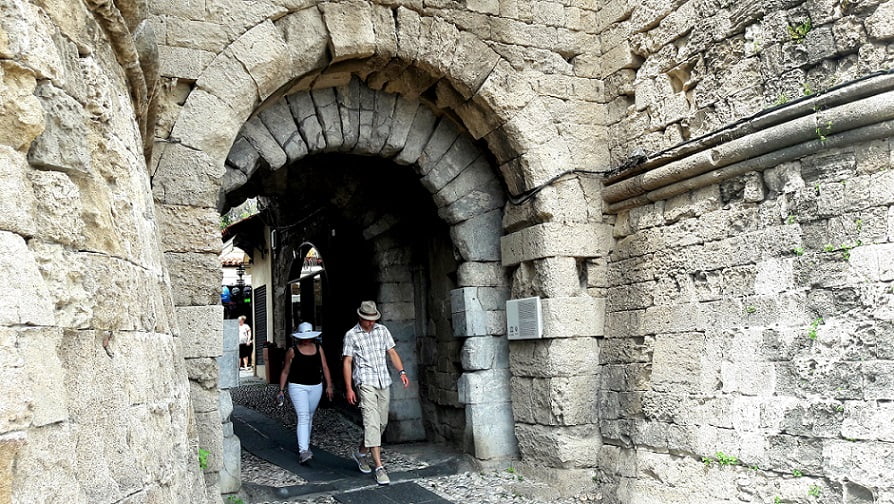
In 1191 Richard the Lionheart of England and King Philip of France came to Rhodes with their fleet to enlist mercenaries for the Crusades. When the Crusaders occupied Constantinople in 1204, a local landowner Leon Gavalas declared himself the ruler of Rhodes, with the consent of the Venetians.
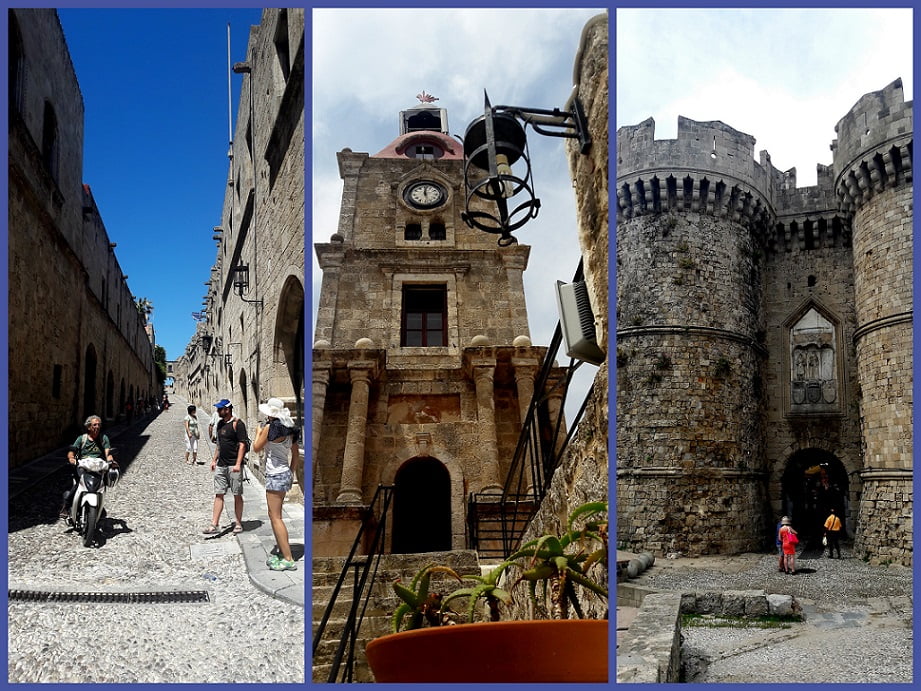
So, the island was sold to and fro throughout centuries until it got into the hands of the Order of the Knights of Saint John of Jerusalem (who took full control in 1309 after the fierce opposition of the Rhodians. The Knights of Rhodes remained on the island until 1522 when the last Grand Master was forced to hand over the town to the Turkish sultan Suleiman (and moved to Malta). It was ruled by Ottomans for 400 years.
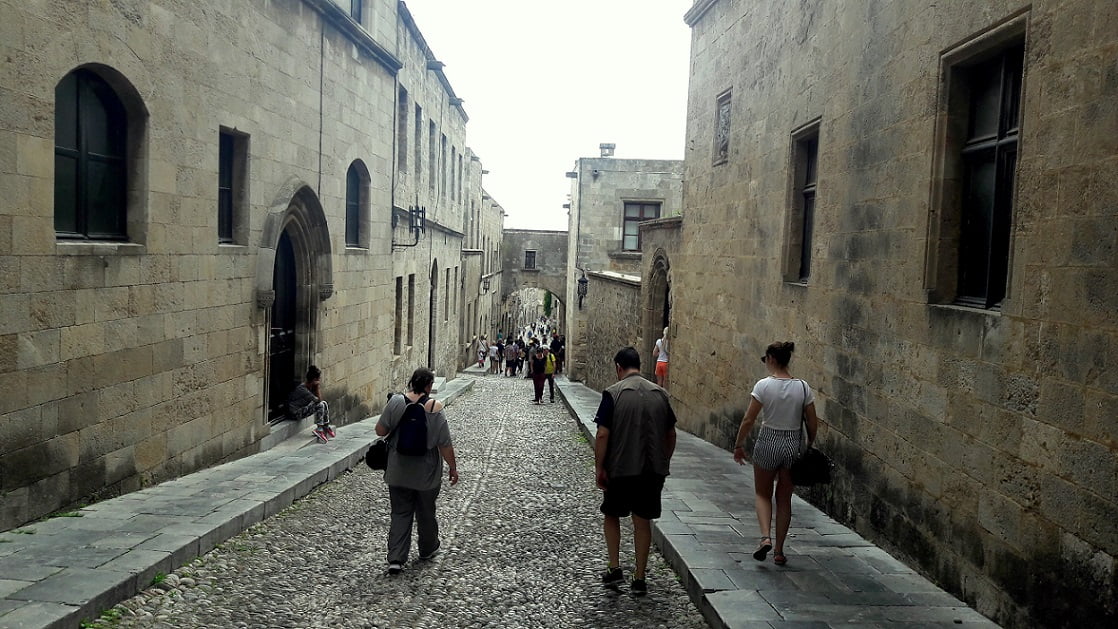
The Order whose members called themselves the Knights of Rhodes, was very important for the island’s development. It had been founded as the philanthropy brotherhood in Jerusalem by merchants from Amalfi, Italy who were permanent residents of the Holy Land. In time, the Order gained considerable strength and took on the character of the military body under the control and authority of the Church.
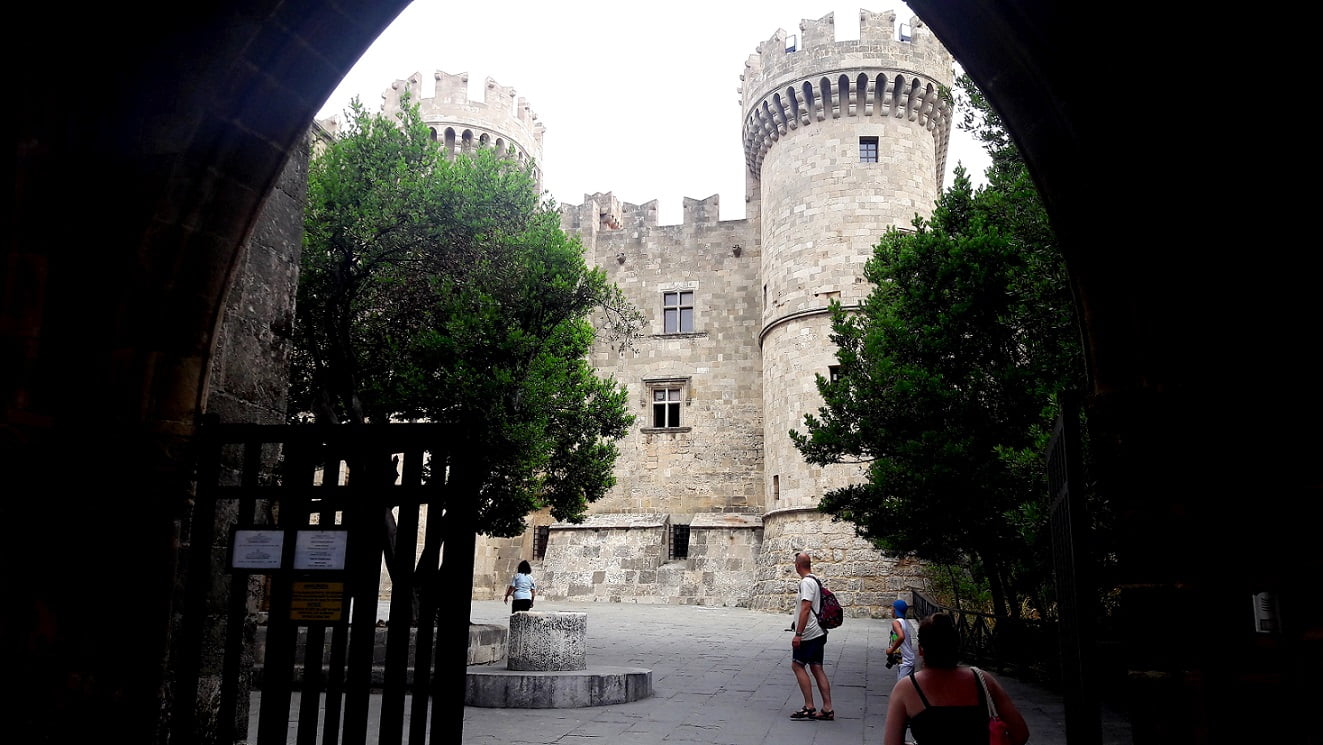
After the capture of Jerusalem by Saladin in 1187 the Knights of Rhodes shifted their base to northern Palestine, then to Cyprus, and finally to Rhodes. In years to come, they conquered the surrounding islands (hence, the architecture on Symi island that resembles Italian Amalfi), and held Smyrna for a long period. When Suleiman the Magnificent took over, the Order settled on Malta, calling themselves the Maltese Knights.
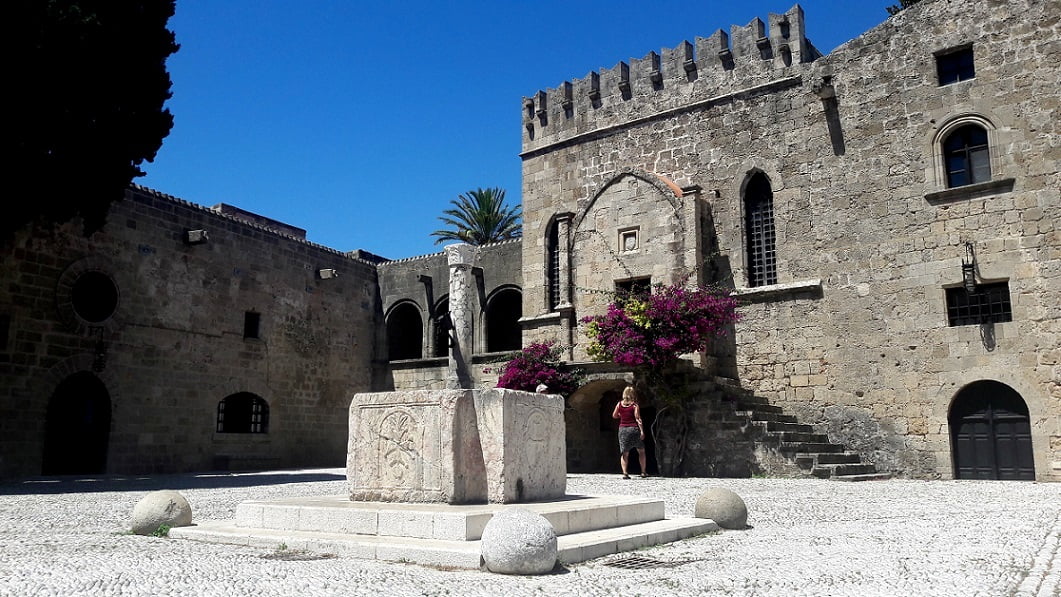
(“Now is definitely time for Malta Things to do, traveling to Samos and lovely towns along the Amalfi coast, since this just craves another journey to continue the knights’ story”, it immediately went through my head.)
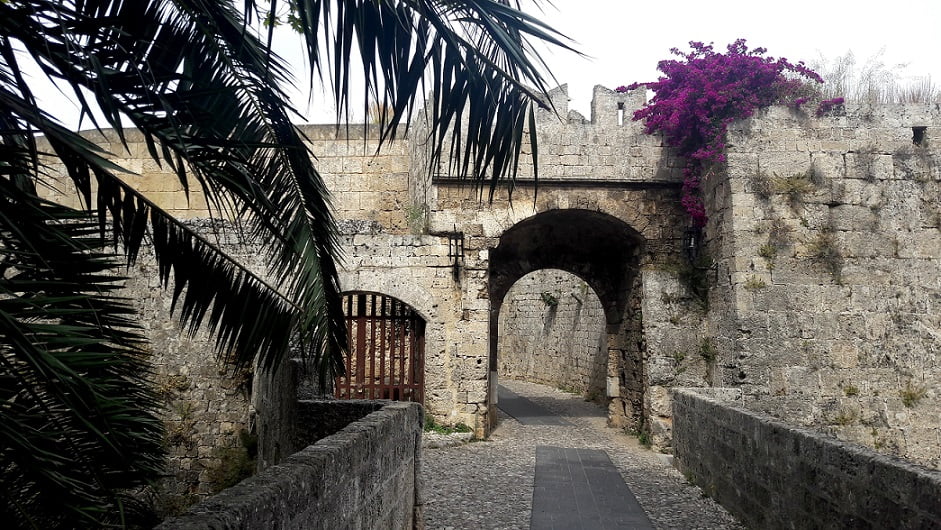
While in Rhodes, members came from all the Catholic countries of Europe that were arranged into seven national and linguistic groups called the Langues. Each stayed in its own “inn” along with its leader. The overall government was controlled by the Grand Master who was elected for life. The official language was Latin, while French was used for oral communication.
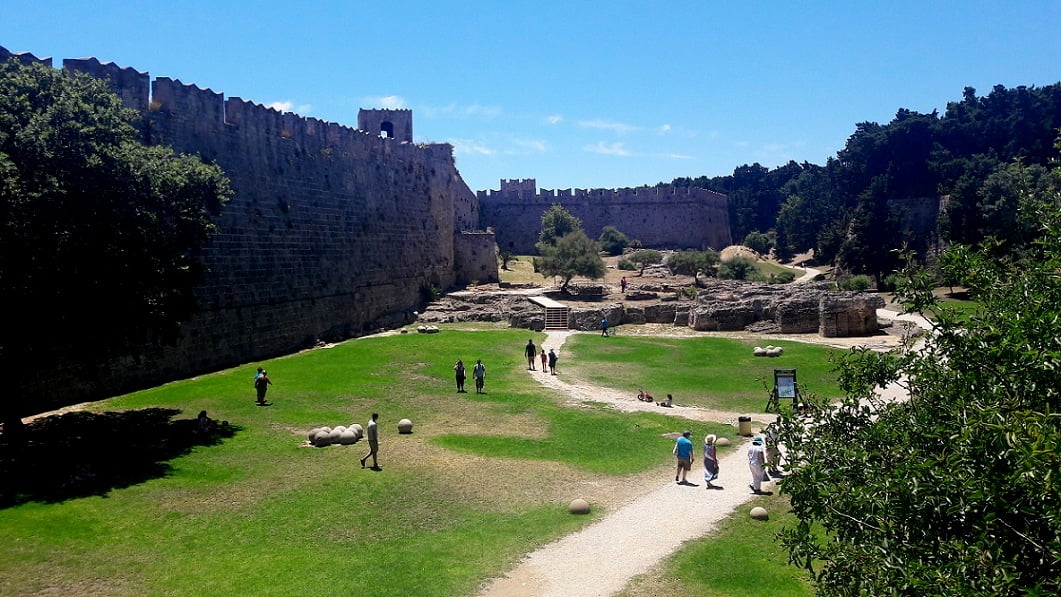
The Old or the Medieval Town is a vital settlement even today, with approximately 6,000 residents who live and work in the same buildings as the Knights of St. John did nearly six centuries ago. This is a living monument, one of the few well-preserved in Europe, where one can easily be lost, finding out another beautiful gem along the narrow streets while trying to reach one of the seven gates embedded into grand walls.
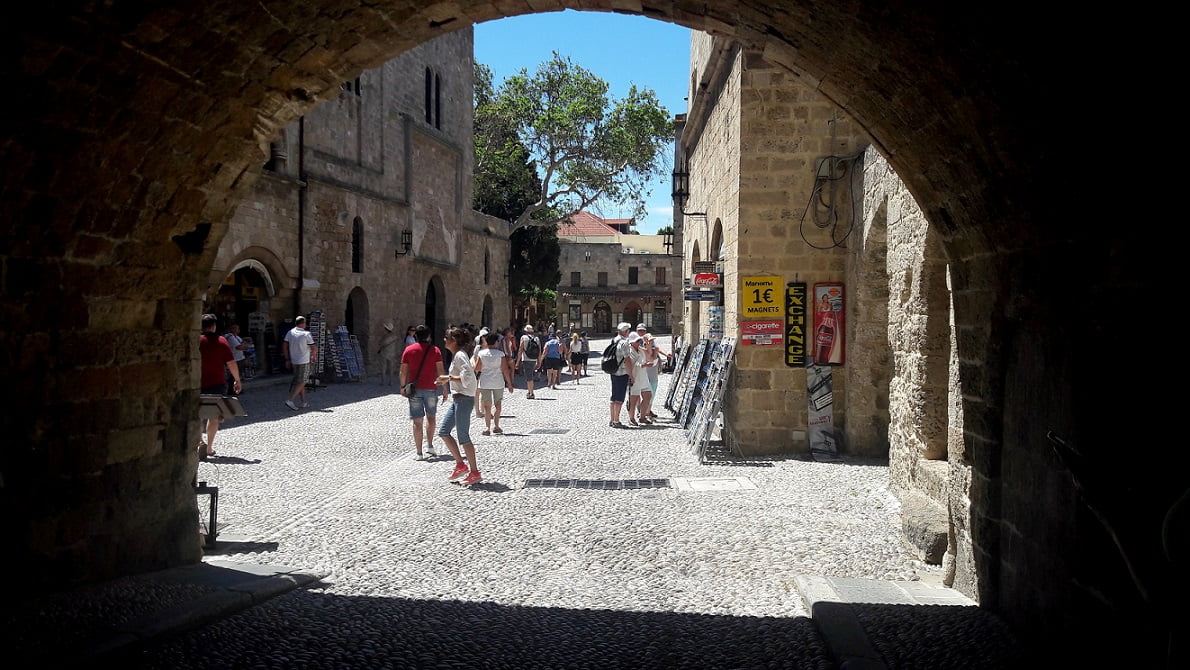
The interesting part of the Rhodes Old Town, called the Castello, is full of monuments. Starting with the Eleftherias Gate, you come across the remains of the Aphrodite Temple. Walk a bit further by the huge, heavy walls and you will come out to the steep, cobblestone Knights Street. There are a lot of “inns” around, the ones that belonged to France or Spain. Also, try not to miss the Archaeology Museum or the Grand Masters’ Palace. (If you buy a ticket for both, including the Folklore Museum visit, it will cost you 10 euros; the fee for entering the Palace alone is 6, and for Archaeology Museum – 8.)
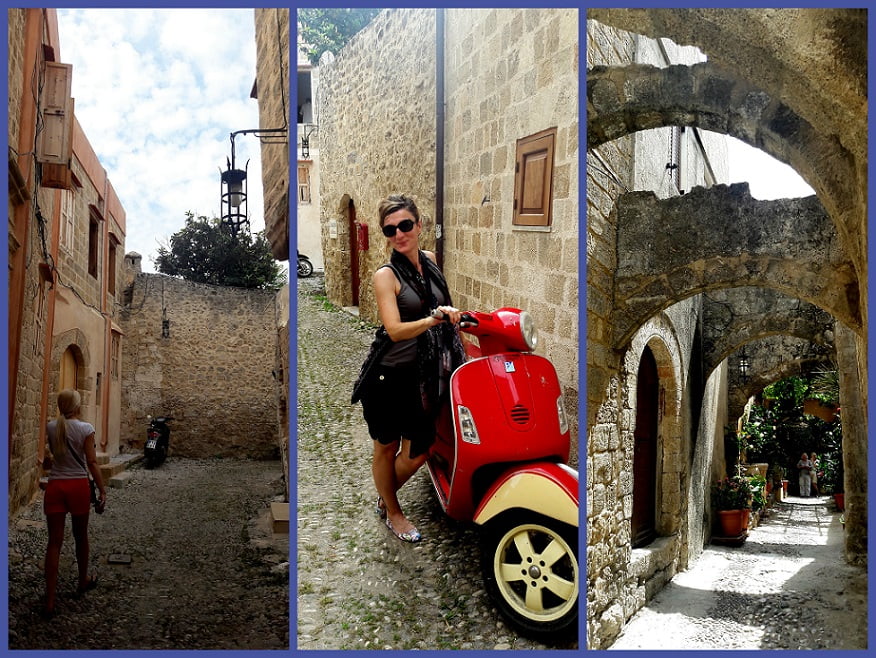
The walls, premises, and arches are all breathtaking. It’s hard to believe that the inhabitants are coming out of small houses, all built to resemble Medieval Town they are a part of. A lot of motorbikes in small allies, another arch, or a hidden Greek restaurant in the courtyard of yet another “stronghold”.
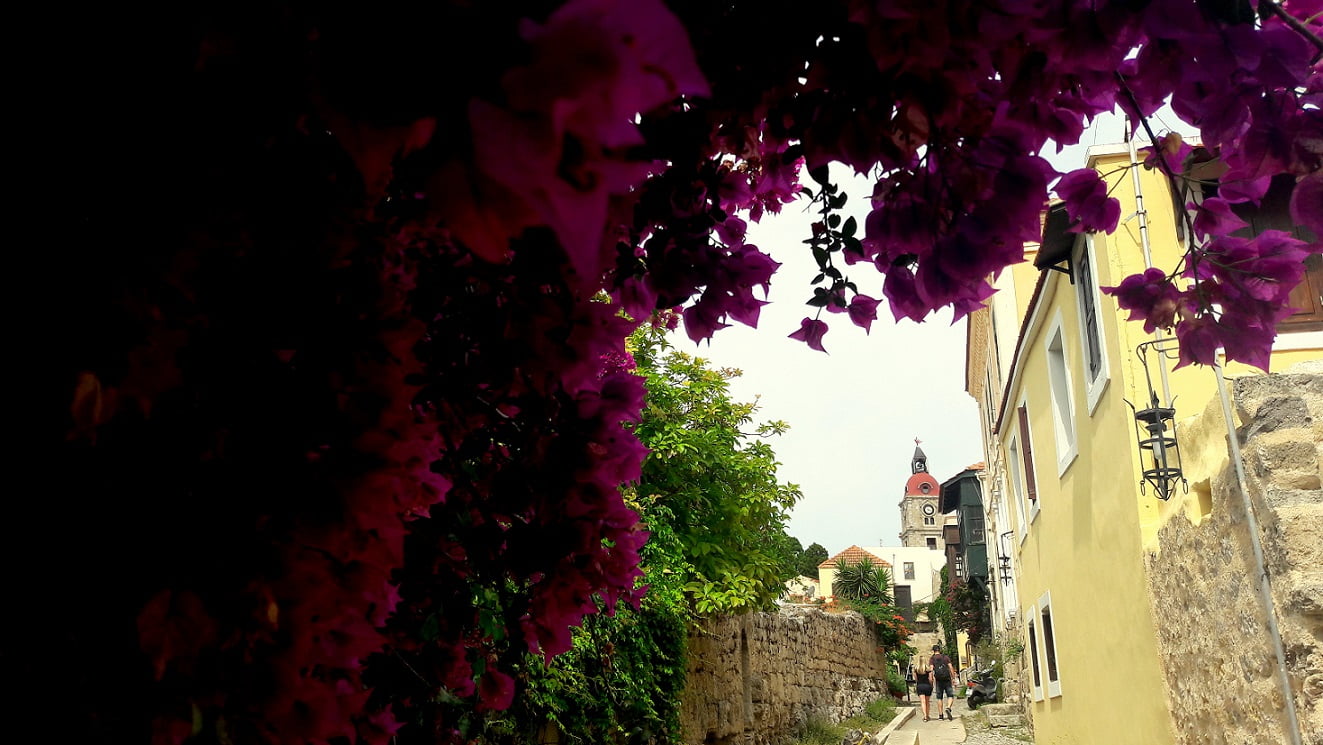
Walking around the Palace, you will see the mosque dedicated to sultan Suleiman, but also the Clock Tower built after the earthquake of 1851. It’s possible to climb up to the tower top. It will cost you five euros to enter, take some stunning photos from up there, and have a drink at the cafe.
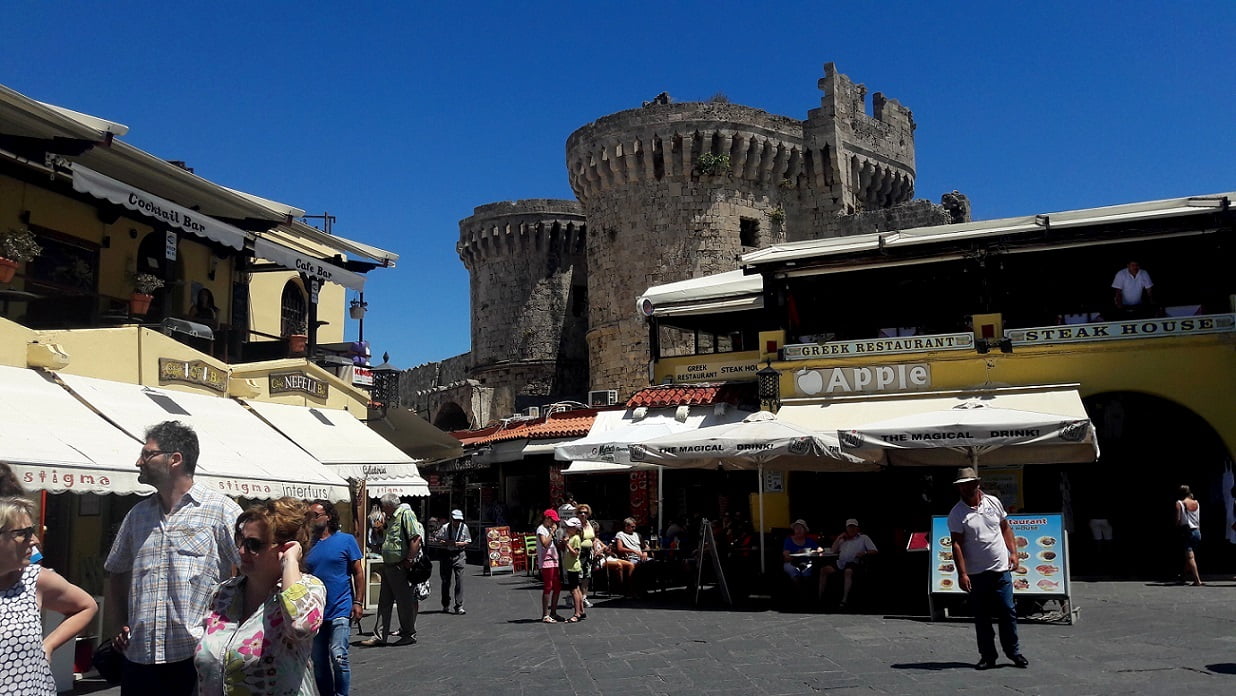
From the Suleiman Mosque, the other part of the Old Town spreads. The Sokratous Street full of shops and cafes will take you down to the Ippokratos Square. This bustling square is always full of visitors, and bear in mind that prices are a bit higher than in the other parts of the city. From here, a street named after another Greek philosopher – Aristotelous Street, leads to the old Jewish quarter.
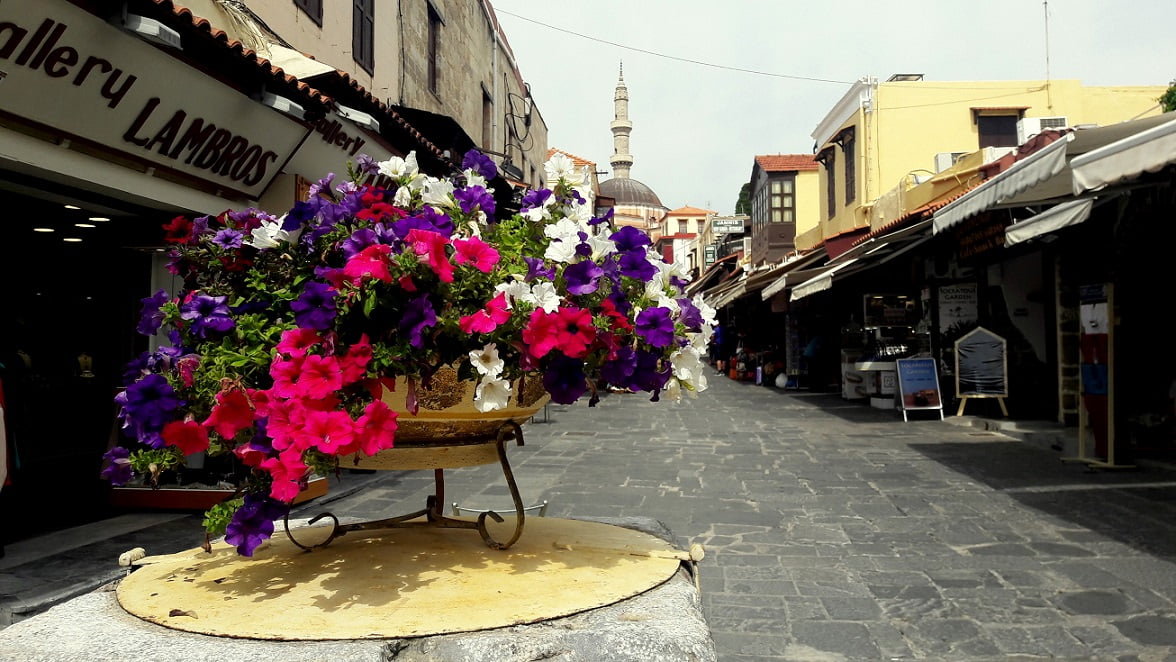
Not only that I was astonished by the history of the place and the Rhodes Old Town itself, but they just had to throw in a couple of ancient philosophers. I mean, since I studied at the Faculty of Philosophy, I was thrilled to be able to walk along Sokratous Street, trying to remember what his cell below the Acropolis of Athens looked like…
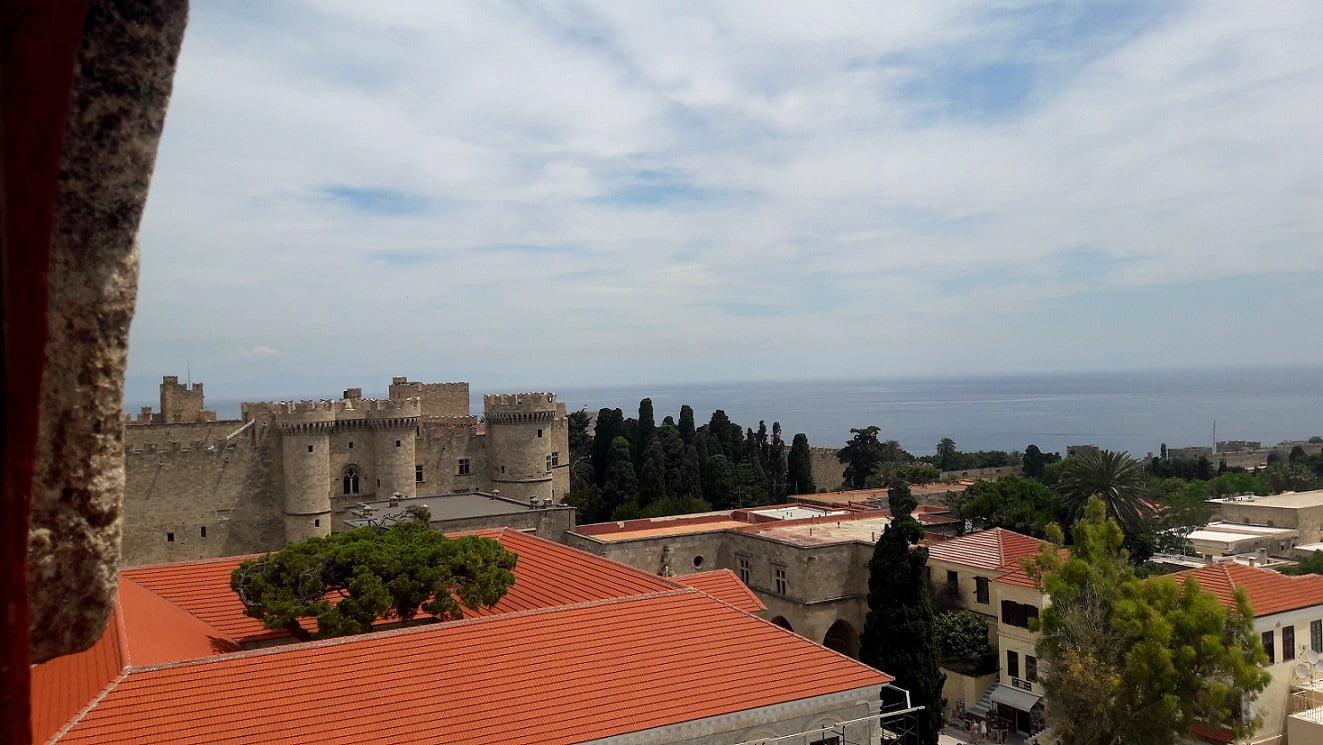
I saw a few more historic spots when touring the island, but let me just take a break here, to cool down my overheated “gray cells”.
After this, we are going to hit the beach and choose where to plunge in along both coasts of the island. It is summer after all, right?
Next: LET’S HIT THE BEACH
The full Rhodes Greece SERIES
If you need a freelance travel writer or you would like to see your country, city, flight, etc., presented on the blog, drop me an email.
Find our more on Freelance Travel Writer page.
I am looking forward to working with you.
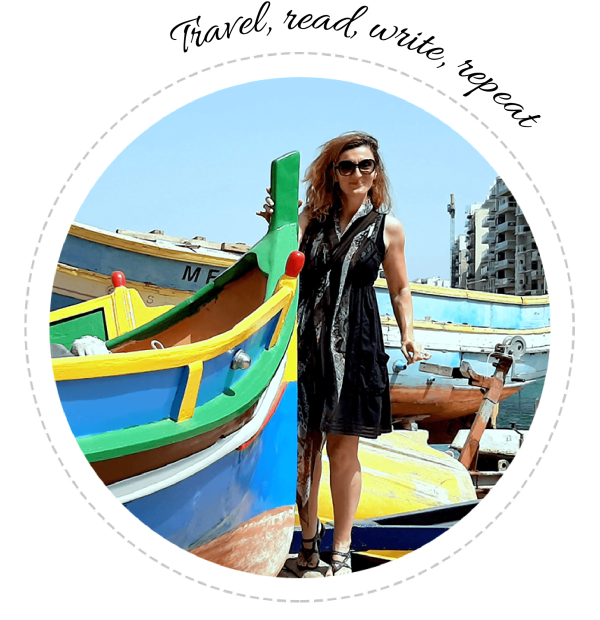



© 2024 Glimpses. All rights reserved. No part of the site may be copied or reproduced without written permission. Web Design & SEO Services – Lavit Solutions.
8 responses
Fantastic post and insight to the history, turmoil and religious transitions to this fascinating island conquered by so many different countries.
Oh thank you so much, it really means a lot. So glad you like it! 🙂
I never been there but looks amazing that place! I’m sure that your holiday fished in the best way!!
Learned so much, love the island! 🙂
There is so much detailed history in this post that I loved it. I have never been to Rhodes myself but now I am raring to go after reading its description. Like you said, it does remind me of Venice too.
I love places with such a history, it’s obvious, right! 😀
Looks like a good day wandering around Old town withthe deep history behind the Old walls and the Tower Clock view is stunning too.
It is, I loved it. There are steep stairs up to the Tower and four windows when you get there, and you need to sit next to them, almost on the floor in order to take photos outside. But the view is breathtaking! 🙂